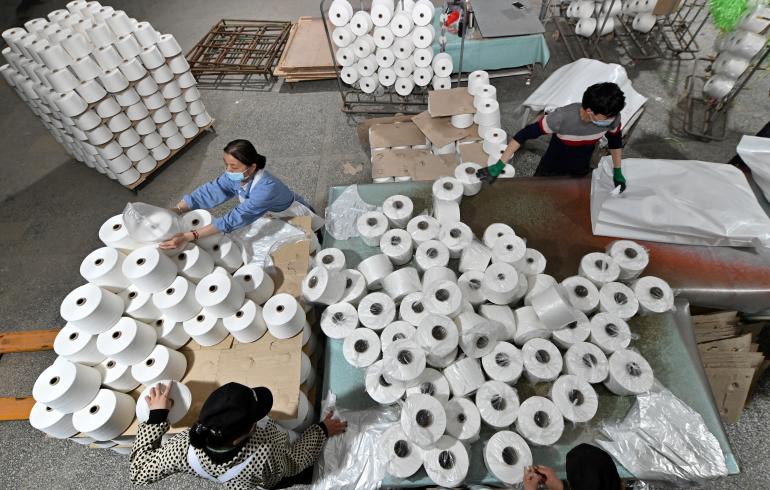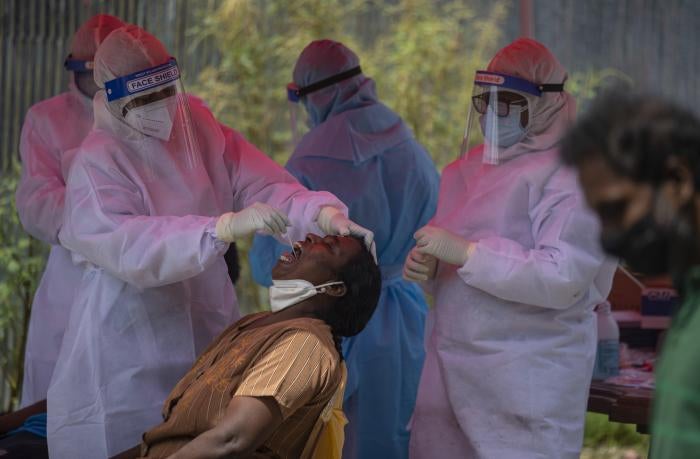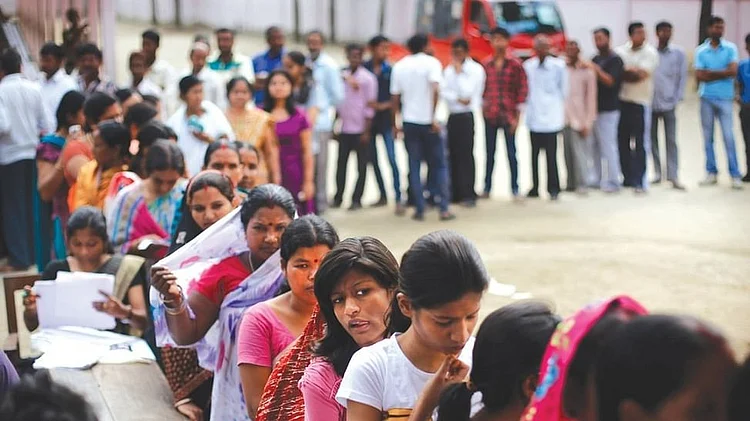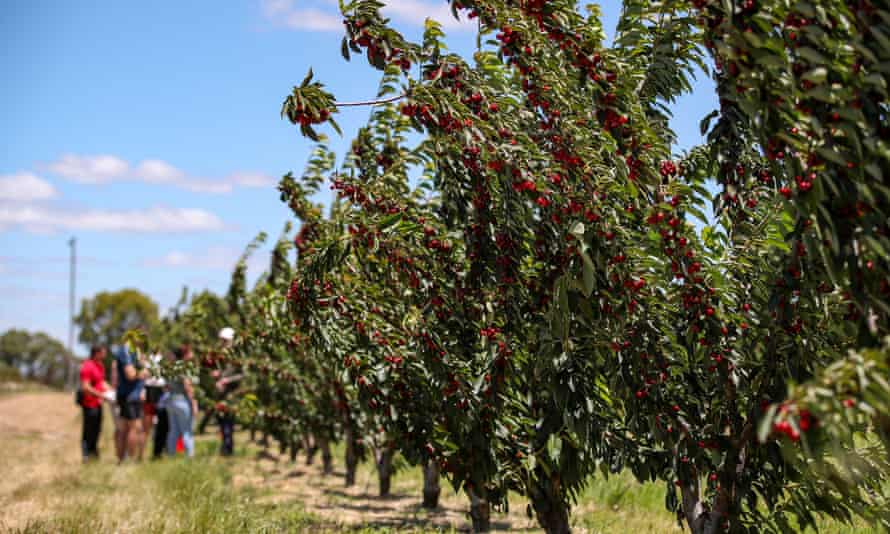INDIA
Are trade unions and strikes called by them losing shine? Here’s what data show
Reported industrial unrest incidents among larger firms have been declining thanks to low success in achieving outcomes and reduced negotiating power by workforce or trade associations.
CHAITANYA MALLAPUR
MARCH 01, 2021

The unrest at the General Motors plant in Pune shines the spotlight on labour rights and the trade union movement in India. The auto industry has often been in the news for labour unrest, but such strikes are becoming increasingly infrequent.
While at least 500 industrial unrest incidents such as strikes and lockouts have taken place over the five years ending 2019, these have been falling over the years, official data show. This is owing to the low success in achieving outcomes and reduced negotiating or bargaining power by workforce or trade associations over the years.
This fact could also perhaps be seen in the lukewarm response to the Bharat Bandh called by the Confederation of All India Traders (CAIT) on February 26 against rising fuel prices, the E-way Bill, and the goods and services tax (GST). Despite 40,000 traders associations expressing support, life pretty much went on as normal.The 421 strikes and 100 lockouts reported between 2015 and 2019 did result in a loss of over 14.5 million man-days, according to the ministry of labour and employment’s 2019-20 annual report. However, data show a decline here too. A caveat: this data captures only reported incidents and comes with a lag, so it doesn’t include recent incidents.
STRIKES, LOCKOUTS AND MAN-DAYS LOST
Why is there a decline in the number of incidents? Experts suggest a couple of reasons.
“There are not many cases of success,” said Bino Paul, Professor and Associate Dean at the Centre for Human Resources Management and Labour Relations, School of Management and Labour Studies at the Tata Institute of Social Sciences, Mumbai. “Very rarely, strikes evolve to the framework of industrial relations and collective bargaining.”
Workers strike or threaten to strike primarily due to two reasons – wages and layoffs.
According to Paul, “it is a stylised fact that the real wage rate in manufacturing and service activities/industries in India hardly keeps pace with the cost of living. It is not unusual to find a good chunk of the blue-collar workforce are paid just the minimum wage or slightly above it. It neither absorbs the cost of living nor premium for productivity or skill.”
Then, workers are increasingly vulnerable to job losses.
“Workers, in themselves, do not have the ability to enforce wage claims especially when they are vulnerable due to the fear of losing jobs and in the absence of a social security cover,” said Jayan Thomas, Professor of Economics at the Indian Institute of Technology Delhi.
In the five years to 2019, as many as 76 units have closed down affecting 6,726 workers, according to the labour ministry. Likewise, 150 units reported laying off 20,505 workers over four years ending February 2019. Another 4,345 workers permanently lost their jobs in 28 units during this period.
CLOSURES, RETRENCHMENT, LAY-OFFS
AND WORKERS AFFECTED
Note that this data pertains to only those establishments that employ 100 or more people since they need to seek prior permission from the government to shut down, lay-off or retrench people. We rarely hear about job losses or unrest in smaller units.
Traditionally, trade unions have played the intermediary role in supporting and backing interests of workers at the workplace, helping to fulfil their demands by carrying out negotiations with the management. But they are becoming less effective over the years, said experts. Indeed, India’s trade union density (the percentage of employees who are part of unions) had declined to 12.8 percent in 2011, the last year for which data is available with the International Labour Organisation.
“With the nature of industry and social security of workers changing, the role of trade unions has also seen a change over the recent years,” according to Thomas of IIT. “Capital is now more focused on automated machinery and technology making labour a less critical factor in the production process. With such changes in the nature of industrial production and with the rising share of informal or unorganized workers in the labour force, trade unions are now less effective.”
That said, one area where trade unions have remained active is in the banking sector, perhaps not surprising given the dominance of state-owned lenders. Data showed that the banking industry accounted for a lion’s share – over 60 percent – of strikes recorded (under central sphere) in the three years to 2019, according to a reply given in the Lok Sabha on March 2, 2020. The United Forum of Bank Unions has called for another two-day strike on March 15 and 16 to protest the proposed privatisation of two banks announced in the Budget.
But in general, strikes are more sensitive to the nature of the value chain rather than the type of the industry, said experts.
“The upstream activities in the value chain that are made of micro and small industries resort to cheap labour for the production. This is essential for them since micro and small suppliers may not have good bargaining power over the downstream original equipment manufacturers (buyers),” said Paul.
In the larger analysis, the key issue that remains is the quality of labour standards in India and their enforceability.“India falls short of labour standards, while there are laws, enforcement is far from being satisfactory. A classic example is a minimum wage for domestic workers. Another gap is the inadequate link between wage, productivity and skill,” said Paul. “It is important to come up with workable and fair negotiation frameworks. This calls for creative collaborations between trade unions, industry and state.”










